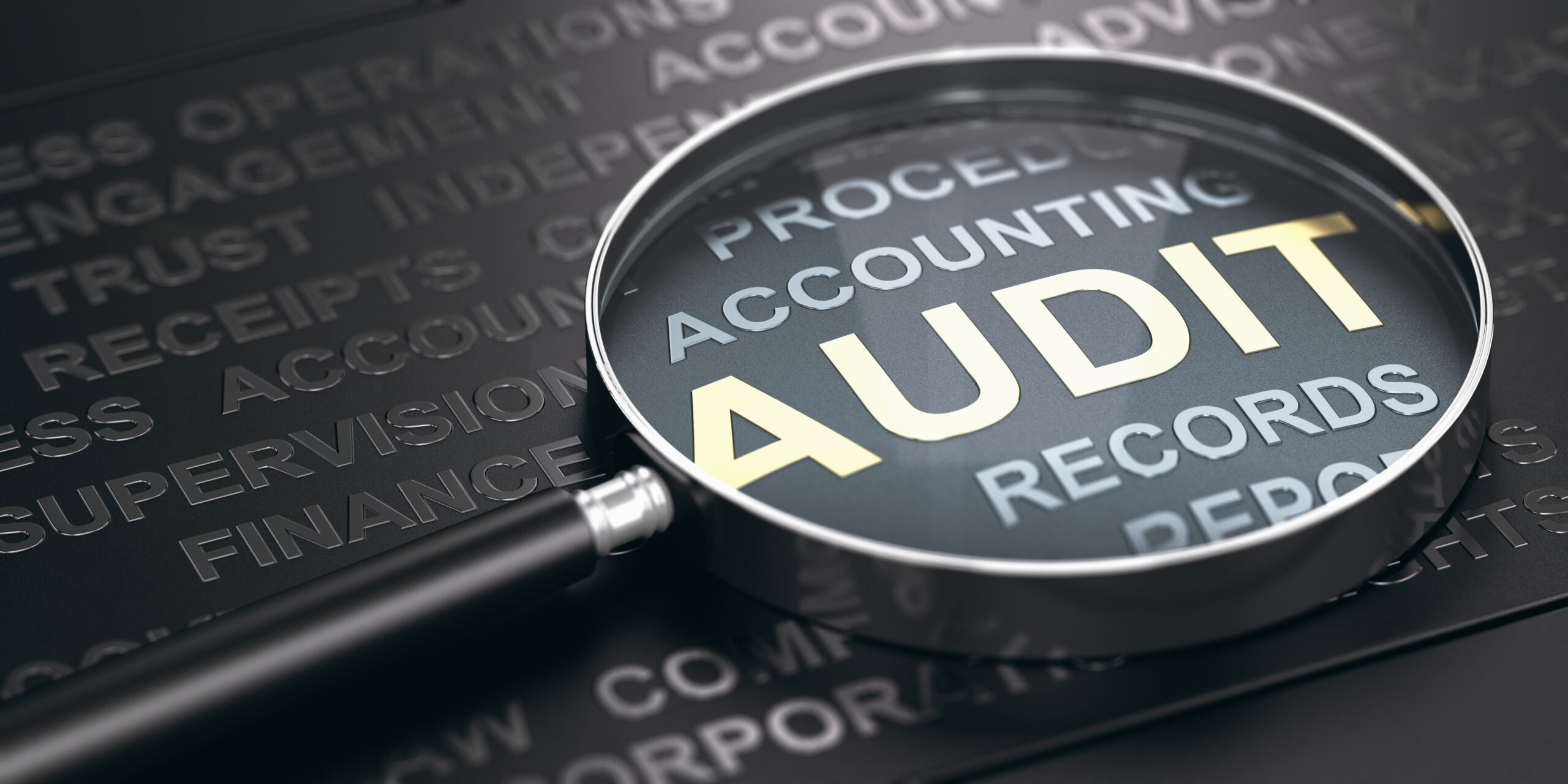In today's data-driven business landscape, organizations rely heavily on analytics to make critical decisions, optimize operations…
Audit Testing Insurance: Essential Protection for Professional Auditing Services
Introduction
In today's complex business environment, audit testing professionals face unique risks that require specialized insurance coverage. Whether you're an independent auditor, part of an accounting firm, or running a dedicated audit testing service, the right insurance protection is crucial for safeguarding your business against professional liability claims, regulatory issues, and operational risks.
Audit testing insurance provides comprehensive coverage tailored specifically to the challenges faced by auditing professionals, from errors and omissions in testing procedures to data breaches and regulatory compliance failures.
Understanding Audit Testing Risks
Professional Liability Exposures
Audit testing professionals face several key risk areas:
Testing Methodology Errors: Mistakes in audit procedures, sampling methods, or testing protocols can lead to significant client losses and professional liability claims.
Regulatory Compliance Failures: Non-compliance with auditing standards, regulatory requirements, or industry-specific guidelines can result in penalties and legal action.
Data Security Breaches: Handling sensitive financial and business data creates exposure to cyber threats and data protection violations.
Client Relationship Issues: Disputes over audit findings, testing results, or professional recommendations can escalate into costly legal proceedings.
Technology and System Failures: Reliance on specialized audit software and testing tools creates risks from system failures or data corruption.
Core Insurance Coverage Areas
Professional Indemnity Insurance
This is the cornerstone of audit testing insurance, providing protection against:
- Claims arising from errors in audit testing procedures
- Allegations of negligent advice or recommendations
- Failure to detect material misstatements or irregularities
- Breach of professional duty or standards
- Defense costs and legal expenses
- Regulatory investigation costs
Coverage typically includes both claims-made and occurrence-based options, with retroactive date protection for ongoing professional relationships.
Cyber Liability Insurance
Given the sensitive nature of audit data, cyber insurance is essential:
- Data breach response and notification costs
- Cyber extortion and ransomware protection
- Business interruption from cyber incidents
- Third-party liability for data compromises
- Regulatory fines and penalties
- Credit monitoring services for affected parties
General Liability Protection
Covers third-party claims for:
- Bodily injury or property damage at client premises
- Libel, slander, or defamation claims
- Advertising injury or intellectual property disputes
- Products liability for audit reports and deliverables
Employment Practices Liability
Protection against employment-related claims:
- Wrongful termination or discrimination allegations
- Harassment or workplace misconduct claims
- Wage and hour disputes
- Hiring practice violations
Specialized Coverage Considerations
Regulatory Investigation Coverage
Audit professionals may face investigations from:
- Financial Conduct Authority (FCA)
- Institute of Chartered Accountants regulatory bodies
- Industry-specific regulators
- International regulatory authorities for cross-border work
Coverage should include investigation response costs, legal representation, and potential fines or penalties.
International Operations Coverage
For audit firms working internationally:
- Worldwide territorial coverage
- Foreign regulatory compliance
- Currency fluctuation protection
- Cross-border legal jurisdiction issues
Technology Errors and Omissions
Specialized coverage for:
- Audit software failures or errors
- Data analytics tool malfunctions
- Cloud-based system vulnerabilities
- Third-party technology provider failures
Industry-Specific Considerations
Financial Services Auditing
Enhanced coverage requirements for:
- Securities and Exchange Commission compliance
- Anti-money laundering regulations
- Consumer credit regulations
- Investment advisory standards
Healthcare Audit Testing
Specialized protection for:
- HIPAA compliance requirements
- Medical record confidentiality
- Healthcare fraud investigations
- Clinical trial audit procedures
Government Contract Auditing
Additional coverage for:
- Government contract compliance
- Security clearance requirements
- Public sector audit standards
- Whistleblower protection issues
Risk Management Best Practices
Quality Control Systems
Implementing robust quality control measures:
- Standardized audit testing procedures
- Regular peer reviews and quality assessments
- Continuing professional education requirements
- Documentation and file retention policies
Client Relationship Management
- Clear engagement letters and scope definitions
- Regular client communication and updates
- Proper expectation setting and limitation explanations
- Conflict of interest identification and management
Technology Security Measures
- Multi-factor authentication systems
- Encrypted data storage and transmission
- Regular security audits and updates
- Employee cybersecurity training programs
Professional Development
- Staying current with auditing standards and regulations
- Regular training on new testing methodologies
- Industry association membership and participation
- Peer networking and knowledge sharing
Claims Prevention Strategies
Documentation Excellence
Maintaining comprehensive records of:
- Audit planning and risk assessment procedures
- Testing methodologies and sample selections
- Findings documentation and supporting evidence
- Client communications and management responses
Independence and Objectivity
Ensuring proper independence through:
- Conflict of interest policies and procedures
- Rotation requirements for key audit personnel
- Non-audit service restrictions and approvals
- Financial interest disclosure requirements
Supervision and Review
Implementing effective review processes:
- Experienced staff supervision and mentoring
- Multi-level review procedures for complex engagements
- Quality control partner involvement
- External peer review participation
Choosing the Right Insurance Provider
Industry Expertise
Look for insurers with:
- Specialized knowledge of audit testing risks
- Experience with professional services claims
- Understanding of regulatory requirements
- Track record in the auditing profession
Coverage Flexibility
Ensure policies offer:
- Scalable coverage limits based on engagement size
- Flexible deductible options
- Customizable coverage extensions
- Multi-year policy terms for cost stability
Claims Handling Excellence
Evaluate insurers based on:
- Professional liability claims expertise
- Regulatory investigation experience
- Network of specialized legal counsel
- Proactive risk management support
Cost Factors and Considerations
Premium Determinants
Insurance costs are influenced by:
- Size and complexity of audit engagements
- Industry sectors served
- Geographic scope of operations
- Claims history and risk profile
- Coverage limits and deductible selections
Cost Management Strategies
- Implementing strong risk management practices
- Maintaining clean claims history
- Participating in insurer risk improvement programs
- Considering higher deductibles for premium savings
- Bundling multiple coverage types with one carrier
Regulatory Compliance Requirements
Professional Standards Compliance
Ensuring adherence to:
- International Standards on Auditing (ISAs)
- Generally Accepted Auditing Standards (GAAS)
- Public Company Accounting Oversight Board (PCAOB) standards
- Industry-specific audit requirements
Insurance Requirements
Many regulatory bodies and clients require:
- Minimum professional indemnity coverage levels
- Proof of insurance documentation
- Coverage verification for engagement acceptance
- Run-off coverage for retiring practitioners
Future Trends and Considerations
Technology Evolution
Emerging trends affecting coverage needs:
- Artificial intelligence in audit testing
- Blockchain technology applications
- Advanced data analytics tools
- Remote audit procedures and virtual testing
Regulatory Changes
Evolving requirements including:
- Enhanced cybersecurity standards
- Increased transparency requirements
- Stricter independence rules
- International harmonization efforts
Market Dynamics
Industry changes affecting insurance needs:
- Consolidation in the audit profession
- Increased litigation frequency and severity
- Growing regulatory scrutiny and enforcement
- Expanding international business operations
Conclusion
Audit testing insurance is not just a regulatory requirement or business necessity—it's a strategic investment in your professional practice's long-term success and sustainability. The specialized nature of audit testing work requires equally specialized insurance protection that understands the unique risks and challenges faced by auditing professionals.
By securing comprehensive coverage that includes professional indemnity, cyber liability, and regulatory investigation protection, audit testing professionals can focus on delivering high-quality services to their clients while maintaining confidence that their business is protected against the inherent risks of the profession.
The key to effective audit testing insurance lies in working with experienced insurance professionals who understand the auditing industry, staying current with evolving coverage needs, and maintaining strong risk management practices that complement your insurance protection.
Remember, insurance is most valuable when you don't need to use it, but when claims do arise, having the right coverage in place can mean the difference between a manageable business interruption and a catastrophic loss that threatens your professional practice's future.


 0330 127 2333
0330 127 2333
























